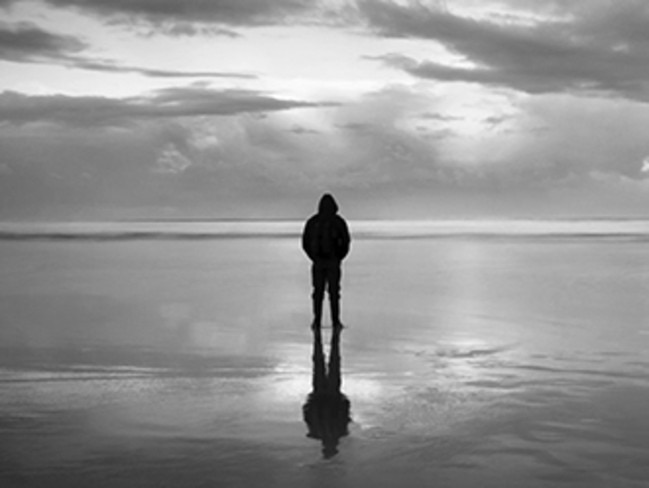Julia Gillard: We all have a role to play in putting a stop to suicide
THOSE most likely to attempt suicide are those who have tried before and, without dedicated support, too many will succeed. Something more must be done, writes Julia Gillard.
Opinion
Don't miss out on the headlines from Opinion. Followed categories will be added to My News.
ABOUT 200 Australians attempt suicide every day and in about 96 per cent of cases, the attempt does not result in death. But, sadly, that doesn’t mean those people are out of danger.
In fact, no group is at greater risk of suicide than those who have previously tried to end their lives.
Up to a quarter will try again in the following three months.
Can you imagine leaving hospital after a traumatic injury or life-threatening illness without a follow-up and support plan in place?
Yet half of those dads, mums, sons, daughters, neighbours and co-workers don’t access follow-up treatment and support after a suicide attempt.
RELATED CONTENT:
DOLLY EVERETT’S PARENTS REVEAL WHAT LED TO HER DEATH
MORE FROM OPINION
We know that intensive support in the community in the days and weeks following hospital discharge reduces suicide reattempts and deaths. Yet there is no guaranteed, systematic follow-up care to keep them safe, connected and motivated to live.
Put simply, the system is failing them. We are failing them.
People tell us they are not offered, or do not access, support after leaving hospital. They simply return to the circumstances that contributed to their psychological pain and triggered their suicidal thinking.
Some report being turned away from emergency departments while others say they were discharged too early.
Worse, some believe they weren’t taken seriously when they asked for help. Anybody thinking about suicide needs and deserves to be taken seriously.
But this is not a finger-pointing exercise: dedicated hospital staff, doctors, nurses, carers and mental health professionals are often barely keeping their own heads above water.
What we have is a gap in the system. It is a gap that has been there for a long time and it must be closed.
That is why beyondblue started the Way Back Support Service, which works alongside people for up to three months following their discharge from hospital.
The thinking is simple: the service supports people to find their way back to hope and to living.
A Way Back worker connects the individual with treatment, support services, their GP.
They encourage the person to keep to a safety plan: what to avoid, what to do when suicidal thoughts creep in, who to call, where to go. They help the person identify and resolve issues that may have contributed to the suicide attempt — employment and relationship challenges, isolation and loneliness.

What started as a small trial in Darwin in 2014 is now saving lives in six sites around the country, with four more coming online.
So far, about 1600 people have been referred to the Way Back Support Service by hospitals in Newcastle, Canberra, Geelong, Murrumbidgee, Redcliffe, and the Clarence Valley.
The Way Back averts suicide attempts and deaths and reduces the cost to the health system of readmissions and offers support to families and friends.
It is working as we intended: suicides by those engaged with the service are less than one per cent. We wish it was zero, but it’s a significant reduction when we know that up to 25 per cent of people will reattempt suicide and up to 10 per cent of them will die in the three months after discharge.
Beyondblue believes that everyone should have equal access to this lifesaving initiative regardless of which hospital we attend or what postcode we live in.
We need a national approach.
Mental Health Australia and KPMG in their Invest to Save report, released this week agree.
The Way Back is built on compelling evidence, has three years’ operational experience, robust and proven clinical governance and risk management arrangements.
Most importantly, though, it meets people’s needs.
It is ready to scale up. I am heartened that federal Minister for Health Greg Hunt has shown support for the proposition. But the Commonwealth cannot do this alone.
Reducing Australia’s suicide rate requires a commitment from the community, health and community services and governments at every level.
All Australian health ministers recently signed up to the Fifth National Mental Health and Suicide Prevention Plan. In the plan they committed to action on “consistent and timely follow-up care for people who have attempted suicide or are at risk of suicide”.
And that’s why beyondblue wants all governments to get behind The Way Back Support Service. Eight people will die today, tomorrow and every day until we find a way to stop this happening.
Now is the time to think big, keep the momentum rolling and get new services that we know are working into the system.
I call on all health ministers and every political leader to get together and deliver change.
As the veteran of many a COAG meeting and ministerial council, I know achieving national approaches is never easy.
But with determination and good will it can be done. And it must be done.
The Hon. Julia Gillard, AC, is the chair of beyondblue
If you or someone you know is struggling, please seek help by calling BeyondBlue on 1300 22 4636 - 24 hours a day, 7 days a week



